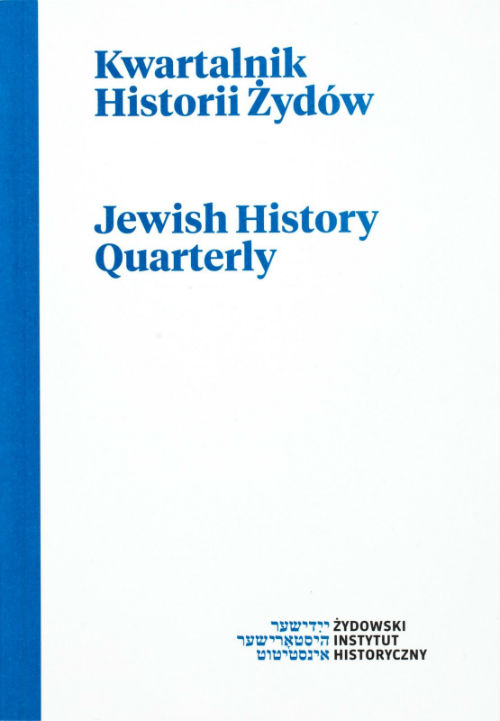O tułactwie inaczej. Przymusowe migracje Żydów we latach I wojny światowej jako czynnik sprzyjający emancypacji
A Different Approach to Exile Life. Forced Migrations of Jews During World War I as a Factor Conducive to Emancipation
Author(s): Konrad ZielińskiSubject(s): History
Published by: Żydowski Instytut Historyczny
Keywords: migrations; chaos; catalyst of social change; social hierarchy; emancipation
Summary/Abstract: The events from the times of World War I and the ensuing migrations were, according to French diplomat Maurice Paléologue „one of the worst experiences ever of the Jewish people.” The loss of property, forced mobilization, deportations, Russian barbarity, reprisals of the belligerent countries and the unfriendly attitude of the Christian population added to the chaos and the sense of general plight. However, analysing the forces migrations of the Jewish population in the Kingdom of Poland, Galicia and Russia during WWI, one should see all the aspects of it: not just the economic hardships, the severing of family or local ties or the chaos the migrants cause in the life of local communities, but also the importance of the migrations for the evolution of national consciousness, the shaking up of the established social hierarchies, the emergence of new elites and the occupational promotion of women, which occasionally also involved changes in the patriarchal model of the family. After all, the refugees held a huge organizational potential, which sometimes had a chance to emerge. In the paper, the author offers an analysis of the migrations of the Jewish population in the years 1914-1918, based on selected examples and seen as a catalyst of changes in the traditional life of the Jewish community and a factor contributing to its modernization and emancipation.
Journal: Kwartalnik Historii Żydów
- Issue Year: 231/2009
- Issue No: 03
- Page Range: 300-311
- Page Count: 12
- Language: Polish

